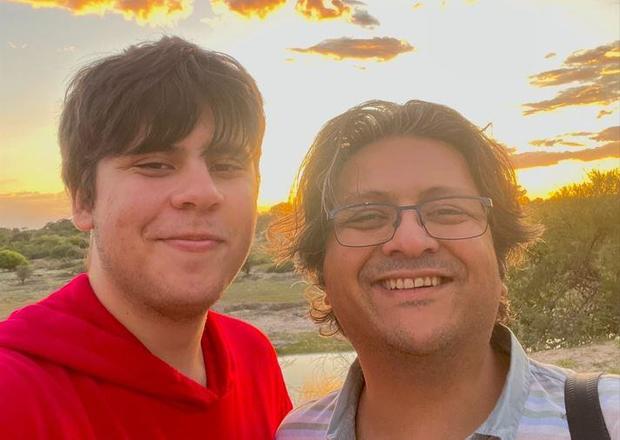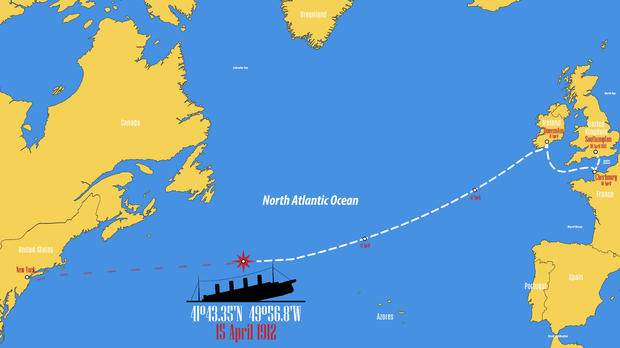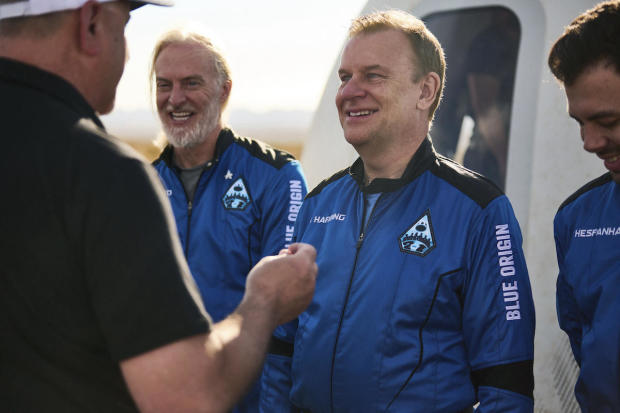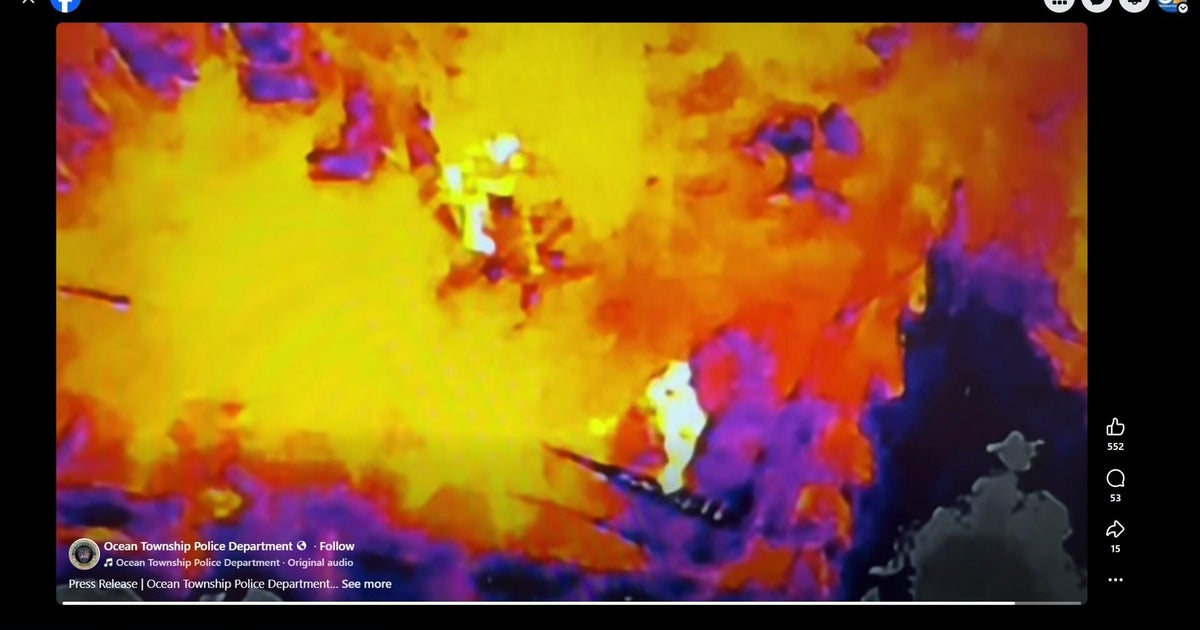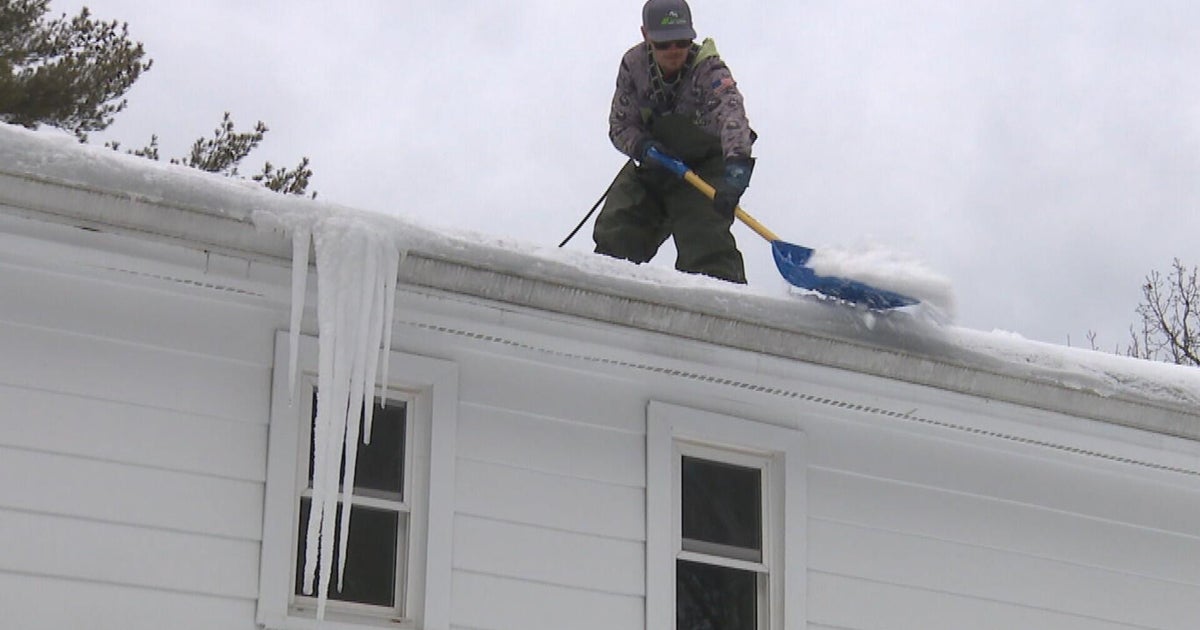Sub still missing as Titanic wreckage site becomes focus of frantic search and rescue operation
Boston — The race to locate a small submersible in the North Atlantic continued Tuesday morning about two days after the sub disappeared on its way to the Titanic wreckage site, which is more than two miles below the ocean's surface. The Titan sub, operated by Washington state-based company OceanGate Expeditions, has five people on board, including at least three paying passengers.
British explorer Hamish Harding, Pakistani businessman Shahzada Dawood and his son Suleman, are all passengers on the 21-foot-long private sub. Unconfirmed reports said the two professional crew members on the sub were OceanGate's CEO and founder, Stockton Rush, and a French veteran of deep-sea exploration who knows the titanic wreckage well, Paul-Henri Nargeolet.
Nargeolet, 77, is the director of underwater research at a company that owns the rights to carry out salvage work on the Titanic wreck. The retired French Navy officer worked as a deep-sea diver and mine-sweeper in the military and then went on to lead the first recovery expedition to the Titanic in 1987, just a couple years after it was located.
Mathieu Johann, a spokesperson for the family, confirmed to CBS News that Nargeolet is on the sub. BBC News said the Frenchman earned the nickname "Mr. Titanic," having possibly spent more time at the wreck than anyone else. Johann told the BBC earlier that the family was hoping Nargeolet's composure and military experience would help reassure the others on the sub.
The U.S. Coast Guard is leading the search for the Titan about 900 miles east of Cape Cod and around 400 miles southeast of Canada's Newfoundland coast, where the sub started its dive on Sunday morning.
The Coast Guard said contact with the sub was lost about an hour and 45 minutes into its dive.
The expedition started with about 96 hours' worth of oxygen on the vessel, at most, so it's a race against the clock to find the sub and try to rescue all of those on board.
"It is a remote area and it is a challenge to conduct a search in that remote area," U.S. Coast Guard Rear Admiral John Mauger acknowledged on Monday.
For years the Titan brought scientists to visit the famous shipwreck, but two years ago, OceanGate Expeditions started taking tourists. The company advertises spaces on the small sub — for "much more" than just "a thrill ride for tourists" — at around $250,000 per person.
Last summer, OceanGate hosted CBS "Sunday Morning" correspondent David Pogue aboard the Titan. He joined an expedition trying to visit the Titanic wreckage, but the trip had several starts and stops — attributed to bad weather and issues with communication. The sub even got lost for a few hours.
As he got situated in the vessel, which he said had about as much room inside as a minivan, Pogue said he "couldn't help noticing how many pieces of this sub seemed improvised, with off-the-shelf components," including a video game controller that was used to pilot the sub.
OceanGate's CEO, Rush, assured him that it was safe.
"So, the pressure vessel is not 'MacGyver' at all, because that's where we worked with Boeing and NASA and the University of Washington," he said. "Everything else can fail… Your thrusters can go, your lights can go... You're still going to be safe."
The friends and family of the five people now missing in the remote North Atlantic will be hoping that's true, including Jannicke Mikkelsen, a friend of British billionaire and Guinness World Record holder, Harding.
"He always wants to go to the next thing that hasn't been done before," Mikkelsen, who has explored with Harding in the past, told CBS News. She says she spoke with the 58-year-old the day before he left for the expedition on the Titan.
The U.K. Foreign Office confirmed to Britain's PA news agency on Tuesday that it was in contact with Harding's family and local authorities working on the rescue mission. It said the U.K. was "ready to provide any additional assistance, including in our capacity as the host nation for NATO's multinational submarine rescue capacity."
"The last thing I said to him was just, Godspeed, and wished him luck with his dive," Mikkelsen said. "Right now, I am nervous and very scared… It's not good. It really isn't good. It will be a miracle if the crew returns alive."
But some experts say there's still hope. Butch Hendrick, president and founder of Lifeguard Systems, has been carrying out water rescues for five decades, and he told CBS News that, "in theory," there could still be about 30 hours to locate and recover the submersible, "if it has not flooded."
"That's a lot of time in the world of rescue," he said, noting that, "very often, some of these incredible rescues have been done in a matter of minutes, while it took days to discover."
CBS News' Emmet Lyons in London contributed to this report.
